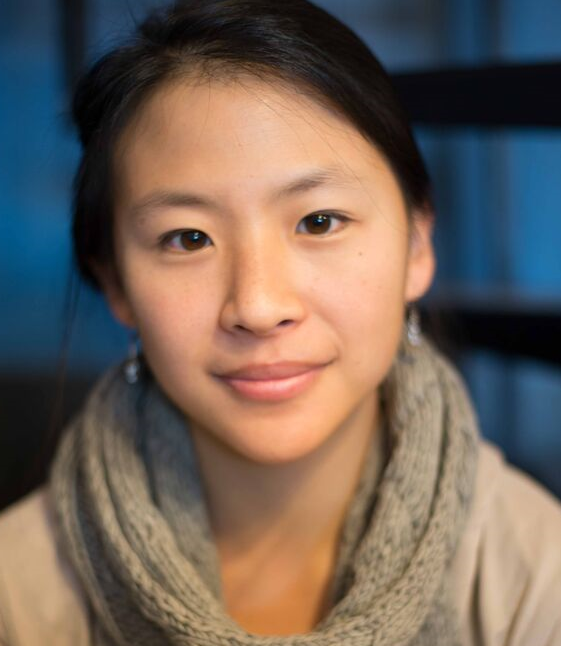Find a CBT Therapist
Search through our directory of local clinicians.
Christine Cha

Christine Cha is an Associate Professor (effective Fall 2021) in the Clinical Psychology Program at Teachers College, Columbia University, where she directs the Laboratory for Clinical and Developmental Studies (LCDS). Her research program aims to refine our understanding of suicide and self-injury among youth. Dr. Cha received her PhD in Clinical Psychology at Harvard University, and completed her clinical training at the Warren Alpert Medical School of Brown University (Clinical Child Track). Dr. Cha’s research has been funded by the National Institute of Mental Health and the American Foundation for Suicide Prevention. She serves on the editorial boards of the Journal of Clinical Child and Adolescent Psychology and Journal of Abnormal Psychology, and recently received the Rising Star Award from the Association for Psychological Science.
What does an average day or week look like for you?
My weeks tend to be highly compartmentalized. I reserve two days each week for back-to-back meetings, and fill in the rest of the time with some teaching/service and as much writing as possible. This results in some long days and sneaking in extra time on the weekends. Something to note is that my schedule continues to evolve with life changes – most dramatically since my son was born 3 years ago. Before, I was able to have more continuous stretches of time to work. The main difference now is the presence of more childcare-related breaks throughout the day (e.g., cooking, cleaning, driving, family bonding time). This new baseline requires continuous adjustment, but it’s possible thanks to flexibility in my schedule, an exceptional research team, and my supportive husband and nearby family. Regarding life outside of work, I exercise several times a week by running or cycling in the early morning. My husband and I also strive for at least one date night each week, and we get together with family and friends on the weekends.
What drew you to this particular research question?
I did not originally expect or plan to pursue the topic of suicide. I had encountered high-risk cases during an early research assistantship, where my role was to help determine whether acute care patients’ self-harming episodes qualified as suicide attempts. As a research assistant, I was struck by the seemingly paradoxical nature of suicide: a high-stakes, life-and-death phenomenon that to some people may be unthinkable, and yet to others seems like the only viable choice. Beyond this, I found compelling the idea that we can think ourselves into (and hopefully out of) different experiences, including suicidal states. Bringing these interests together, I began to pursue cognitive vulnerabilities of suicidal adults and adolescents. This characterizes a substantial portion of my research to this day.
What is an example of a set-back you’ve experienced in your work, and how did you handle it?
The hardest part of my professional journey was initially entering the field. I recall as an undergraduate student, I sent out well over 50 emails to faculty members expressing interest in their research. I would closely read research articles written by each faculty member before writing to them, in efforts to tailor my messages as much as possible. I received very few replies, including one email from a faculty member insisting that I was wasting his and the field’s time – seemingly confirming my fear that I wasn’t good enough for this profession. On these tough days, I leaned heavily on support from friends and family. I kept sending emails despite my fear of being rejected and ignored, and would continuously think of ways to more effectively express my interests.
Why did you join ABCT? How does your ABCT membership inform your research?
I was introduced to ABCT 14 years ago by my mentor, Matt Nock. I still recall how thrilling the first conference was, as I realized it was there that I could see and hear from so many researchers whose work I had previously read. ABCT also provided some of the first opportunities for me to present my independent research. To this day, I appreciate the strong sense of community that ABCT fosters around clinical psychology research and evidence-based treatments; it helps me stay informed and connected to best practices. I am also grateful for the increasing dialogue around appropriately preparing a more diverse workforce. I consider ABCT to be my professional home, and love the chance each November to discover advances in research and evidence-based treatments, support my own trainees and their exciting initiatives, and connect with old friends.
My Account Info
Manage your Membership information, email preferences, and more.
Journals
Membership in ABCT grants you access to three journals.
Convention
We are now accepting Abstract submissions for Continuing Education Ticketed Sessions at the 2024 ABCT Convention in Philadelphia, PA.
My Account Info
Manage your Membership information, email preferences, and more.
Journals
Membership in ABCT grants you access to three journals.
Convention
We are now accepting Abstract submissions for Continuing Education Ticketed Sessions at the 2024 ABCT Convention in Philadelphia, PA.
